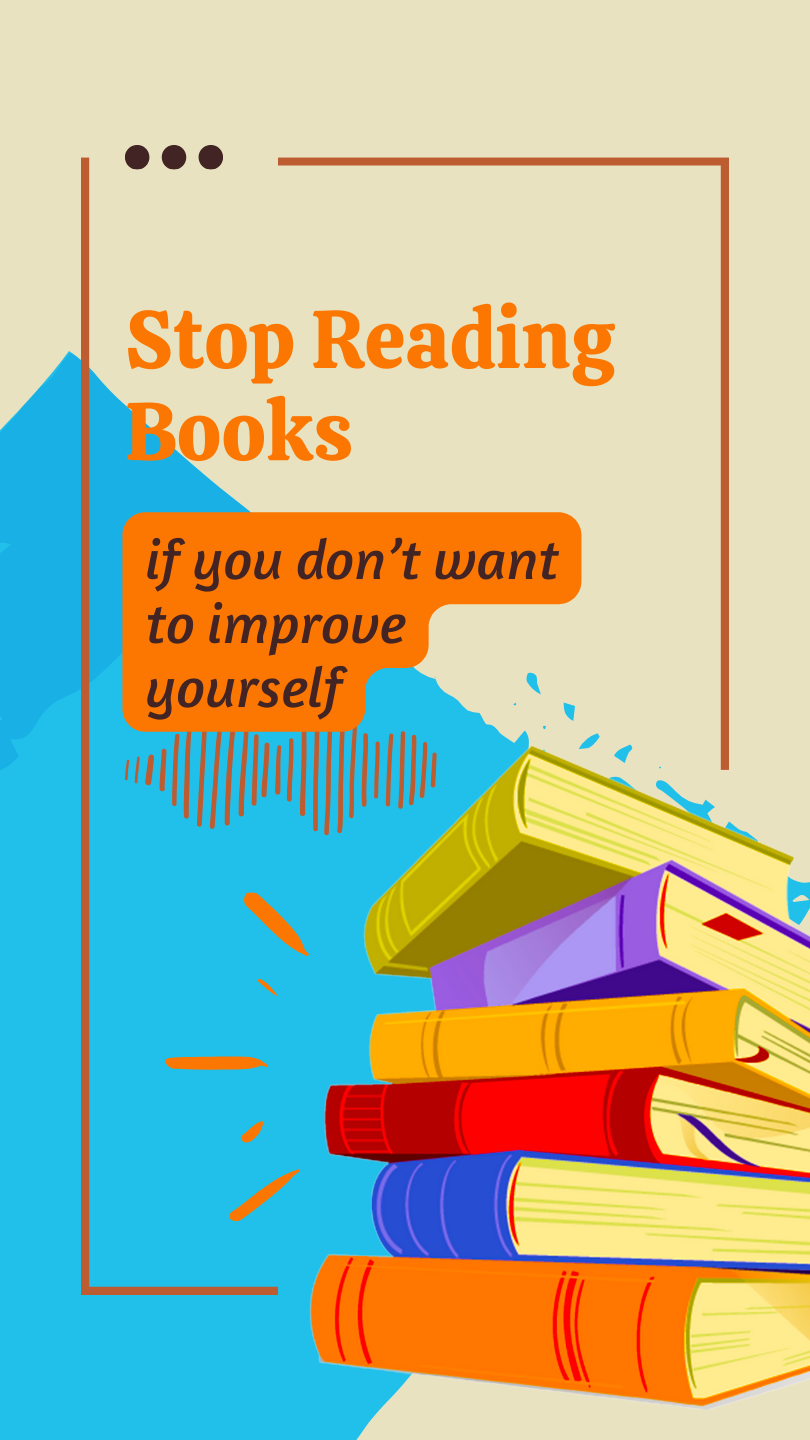Stop Reading Books: If you don't want to improve yourself

As a child, I was an avid reader, devouring books of all kinds – from English literature to those written in my native language, Hindi, and even works by foreign and Indian authors. Fiction and nonfiction both found their way into my hands as I grew older. Books weren't just a source of knowledge for me; they were my teachers, my companions, and my windows to the vast world beyond.
Fast forward to today, and our lives are inundated with screens and gadgets, all vying for our precious attention. The art of leisurely reading seems to have faded into the background. These screens and devices are equipped with scientific algorithms designed to keep us glued to them. It's no wonder that our attention spans have dwindled; some reports claim that our attention span has plummeted from 12 seconds in 2000 to a mere 8 seconds today – a staggering 33% decrease.
But here's the thing – reading and curiosity are intricately intertwined. In his book "Curious: The Desire to Know and Why Your Future Depends On It," Ian Leslie delves into the profound significance of curiosity in our lives. He suggests that curiosity is the driving force behind our thirst for knowledge and personal growth. It impels us to seek out new information, experiences, and ideas – all of which are essential for our intellectual and personal development. Curiosity is the engine that propels us towards learning, innovation, creativity, and effective problem-solving.
And where do books fit into this equation? Well, reading books, especially those that explore diverse subjects, has a knack for piquing one's curiosity. As you explore different topics, genres, and authors, your natural curiosity about the world and its intricacies is constantly stimulated. Books have the power to open doors to new worlds, ideas, and cultures. When you're curious, you're more likely to delve into books that you might not have considered before, thus broadening your horizons and expanding your knowledge. Reading encourages exploration.
Questions are places in your mind where answers fit. If you haven’t asked the question, the answer has nowhere to go. - Clay Christensen
A curious mind is characterized by its ability to ask questions. Questions serve as the places in our minds where answers fit. If we don't ask the question, there's no room for the answer to reside. In this digital age, our thoughts often revolve around status updates rather than asking the right questions. The advent of Google and similar tools has seemingly snatched away our curiosity, rendering libraries almost obsolete. Larry Page and Sergey Brin's creation has replaced the need for physical libraries with screens and keyboards. Our innate ability to be curious and ask the right questions seems to be fading away. As humans, we must find ways to rekindle our curiosity and keep asking those essential questions.
When you read a book and come across something that sparks your interest or raises questions, it acts as a catalyst, motivating you to seek answers – either by delving further into the book or conducting additional research.
Reading books isn't just about skimming the surface; it allows you to dive deep into a subject. The more you read, the more you understand, and the more questions you're likely to have. Reading promotes analysis, questioning, and evaluation of the content. It deepens your understanding of the subject and fosters critical thinking.
Books possess the magical ability to ignite your imagination and creativity. As you immerse yourself in stories, you might find yourself pondering alternative plotlines, character motivations, or even crafting your narratives inspired by what you've read.
Curious readers often have a knack for connecting seemingly unrelated topics. This interdisciplinary approach can lead to unique insights and a broader understanding of the world. You become adept at connecting ideas that others might overlook.
Books often introduce us to characters who grapple with challenges and obstacles. Curious readers find themselves joining these characters on their journey, honing their problem-solving skills along the way.
Regularly reading books instills a lifelong habit of learning. Curious readers are more likely to continue seeking out new books and ideas throughout their lives.
Reading is a reflective activity. Curious readers often pause to contemplate what they've read, ponder its implications, and consider how it relates to their own lives and experiences.
Moreover, reading fosters empathy by exposing you to a diverse range of characters and situations. It encourages you to see the world through different eyes, deepening your understanding of the human condition. Engaging with literature can turn you into a more empathetic and compassionate individual, enhancing your relationships and your ability to connect with people from all walks of life.
In conclusion, reading is not just a pastime; it's a profound and transformative activity that enriches our minds, broadens our horizons, and empowers us to navigate the complexities of life with wisdom and insight. It fosters empathy, fuels our curiosity, and stimulates our imagination. Reading is the gateway to knowledge, the vehicle for personal growth, and the bridge to understanding others and the world around us. It transcends time and space, allowing us to learn from the greatest minds of history and explore distant lands. In a rapidly changing world, the timeless importance of reading endures as a beacon of enlightenment, a source of inspiration, and a testament to the boundless capacity of the human mind. So, let us turn the pages, dive into new worlds, and embrace the endless possibilities that reading offers, for in the pages of a book, we discover not only the stories of others but also the story of ourselves.
